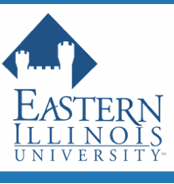Enhancing Learning Outcomes through Incidental Learning: A Focus on Diversity, Inclusion, and Equity in Congruence with the Illinois Culturally Responsive Teaching Standards
Preferred Delivery
In-Person
Length of Presentation
50 minutes
Start Date
20-10-2023 1:00 PM
End Date
20-10-2023 1:50 PM
Document Type
Presentation
Abstract
In every field of endeavor, the ways in which all types of educators effectively impart knowledge is both universal and unique. Whether a college instructor is explaining an advanced concept in a mathematics course or a master electrician is demonstrating the proper method of running conduits for an apprentice, the act of instruction almost invariably includes an “incidental” component, whereby the sender uses both cognitive and affective means to transmit knowledge to the receiver. Such incidental components are most critical for the success of diverse learners in their development for the workforce, as the ability of the instructor to reach, motivate, and advance the learning experiences of these students can assume any number of indirect modalities. The presenter, a professor of teacher education, will demonstrate how he has compiled such traits witnessed in quality educators and, in turn, used classroom tools for student reflection upon these traits.
Description
Incidental learning is an effective way to reach different types of marginalized students. This process involves the examination and use of affective methodologies in the delivery of course content. In the field of education, incidental learning can promote diversity, inclusion, and equity in conjunction with the Illinois Culturally Responsive Teaching Standards, which emphasize the importance of valuing diversity, promoting cultural competence, and providing inclusive learning environments for all students. This presentation will engage the audience in the speakers' programs toward incidental learning at his institution.
Objectives:
- To explore the use of incidental learning in promoting diversity, inclusion, and equity in educational settings;
- To understand how Illinois Culturally Responsive Teaching Standards can be integrated with incidental learning to promote equity and inclusion; and
- To identify strategies for integrating incidental learning into P-12 and post-secondary classrooms.
Relevance to Diversity, Inclusion, and Equity: Diversity, inclusion, and equity are essential components of effective teaching and learning. Educators must understand the unique needs and experiences of their students and create an inclusive learning environment that values diversity. Incidental learning provides an opportunity to identify and address implicit biases, promote cultural competence, and enhance equity and inclusion in educational settings.
Creative Commons License

This work is licensed under a Creative Commons Attribution-Noncommercial-No Derivative Works 4.0 License.
Enhancing Learning Outcomes through Incidental Learning: A Focus on Diversity, Inclusion, and Equity in Congruence with the Illinois Culturally Responsive Teaching Standards
In every field of endeavor, the ways in which all types of educators effectively impart knowledge is both universal and unique. Whether a college instructor is explaining an advanced concept in a mathematics course or a master electrician is demonstrating the proper method of running conduits for an apprentice, the act of instruction almost invariably includes an “incidental” component, whereby the sender uses both cognitive and affective means to transmit knowledge to the receiver. Such incidental components are most critical for the success of diverse learners in their development for the workforce, as the ability of the instructor to reach, motivate, and advance the learning experiences of these students can assume any number of indirect modalities. The presenter, a professor of teacher education, will demonstrate how he has compiled such traits witnessed in quality educators and, in turn, used classroom tools for student reflection upon these traits.


Speaker Information
Doug Feldmann (Ph.D., Indiana University) is a professor in the College of Education at Northern Kentucky University and the author of 14 books on a variety of pedagogical and popular culture topics.